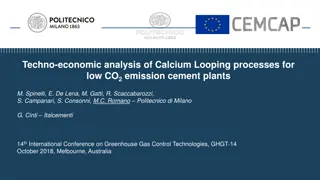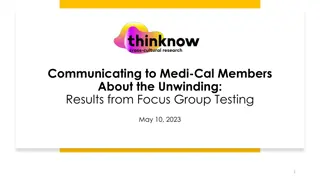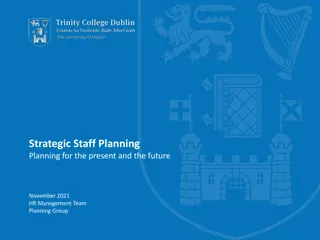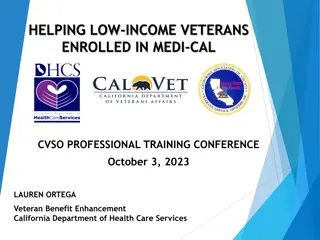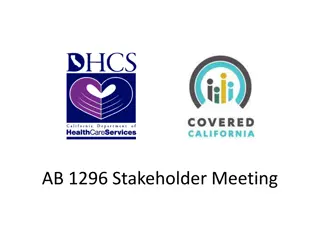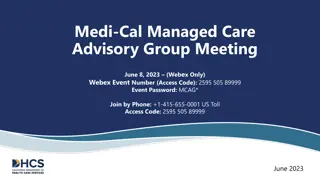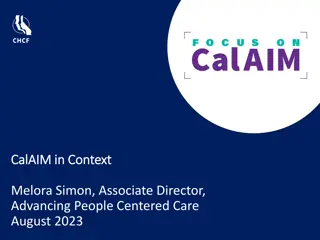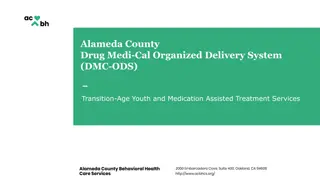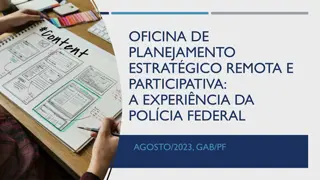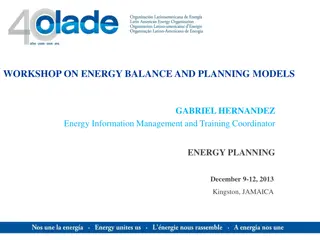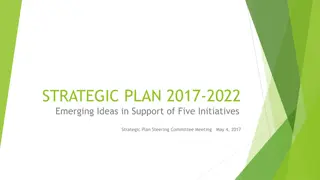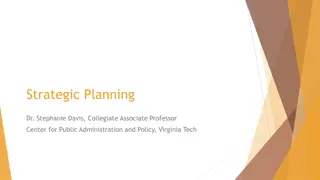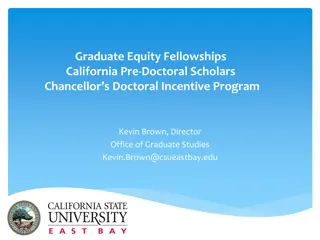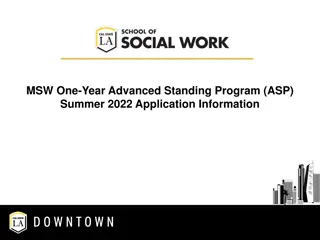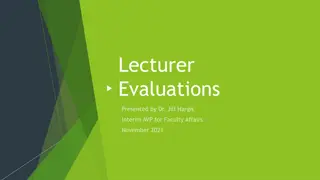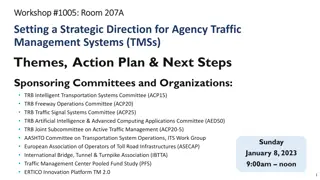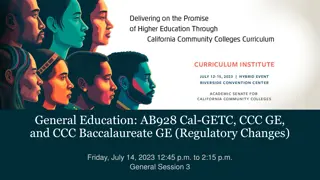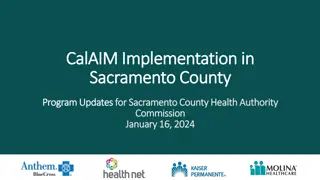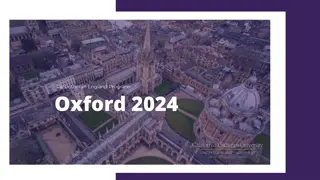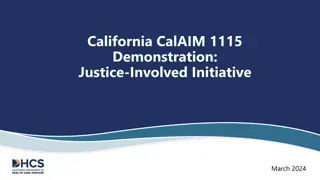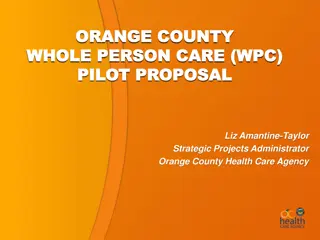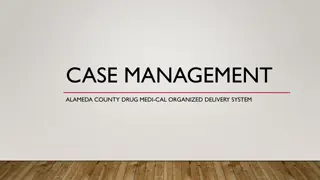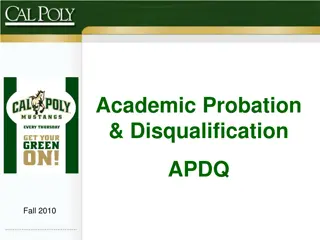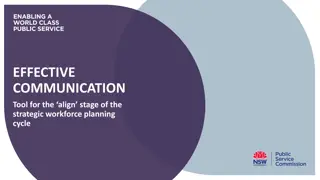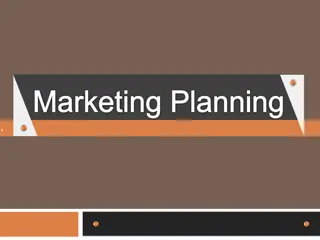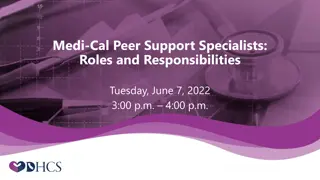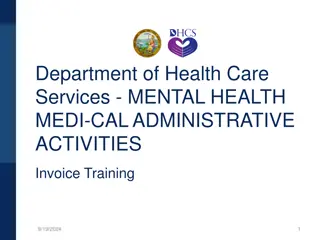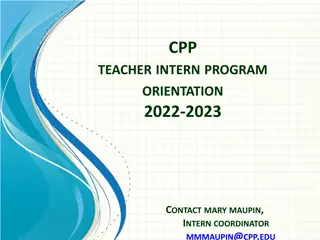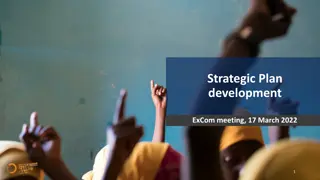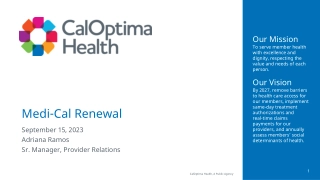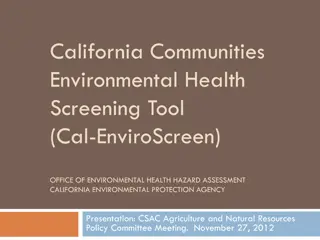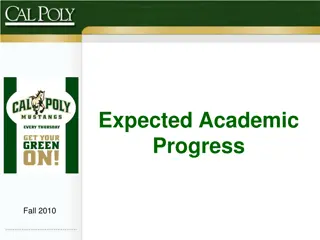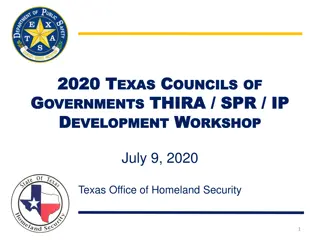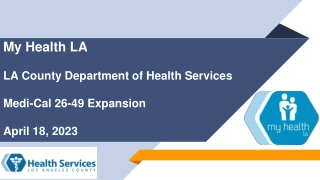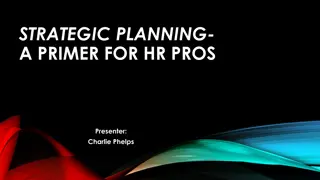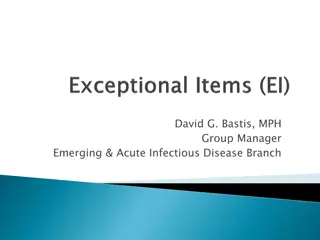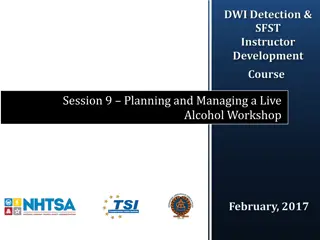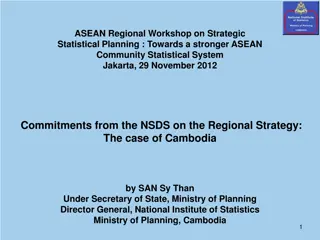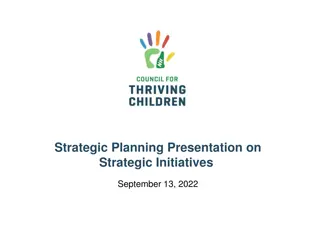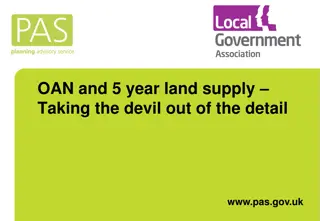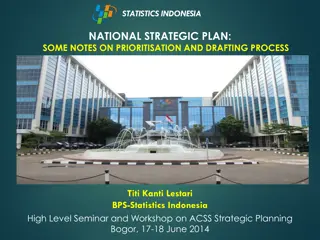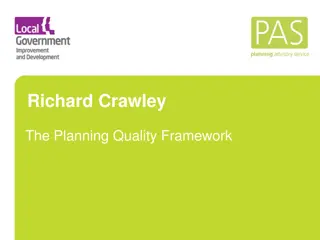Strategic Planning Process and Workshop Approach at Cal State LA
Cal State LA is engaging in a strategic planning process to build a visionary company through inclusive, collaborative, and engaging workshops. The process involves preparation, engagement, drafting the plan, validation, and completion. Stakeholder involvement, feedback incorporation, and regular progress tracking are key elements in creating a shared vision and ensuring alignment across the full campus community.
Download Presentation

Please find below an Image/Link to download the presentation.
The content on the website is provided AS IS for your information and personal use only. It may not be sold, licensed, or shared on other websites without obtaining consent from the author. Download presentation by click this link. If you encounter any issues during the download, it is possible that the publisher has removed the file from their server.
E N D
Presentation Transcript
Cal State LA Strategic Planning Process and Emerging Themes April 12, 2016 1
Strategic Planning Process Building a visionary company requires one percent vision and 99 percent alignment. - Jim Collins and Jerry Porras, Built to Last
Workshop Approach What are the GOALS of the strategic planning process? Create a shared vision we can all get excited about with clear priorities and measureable outcomes Engage the full campus community in the strategic planning process Consider and incorporate input from all stakeholders in the strategic plan Build alignment, encourage dialogue, ensure transparency What is the APPROACH to the workshops?: Inclusive Collaborative Engaging/Fun Transparent Grounded in Data Who are the workshop PARTICIPANTS?: Ranging from 30 150 participants per workshop Combination of faculty, staff, administrators, and students Workshops for each College and Division plus additional stakeholder-specific workshops 3
Strategic Planning Process 1 2 3 4 5 Preparation and Planning Engagement, Information Gathering and Analysis Drafting the Plan Validation and Next Revision Completion, Presentation and Plan Management Identify purpose/objectives Determine process/methodology Stakeholder involvement multiple opportunities for participation Leadership structure Review and consider current state data Engage stakeholders, foster participation and collect input Identify feedback themes and potential priorities in key topic areas Make any revisions to University mission, vision and values Determine select set of key priorities for the University Create high-level first draft plan and implementation framework Validate draft plan direction and content with stakeholder community Incorporate feedback into plan Create final draft Present finished plan Create mechanism for process evaluation Build governance structure to support ongoing review and re-direction/update of plan, as needed Support embedding Strategic Plan initiatives into the work of all areas of the University Regularly track progress, review milestones and report on goal metrics We are here 4
Strategic Planning Key Themes To Date April 12, 2016
Workshop Recap 20 strategic planning workshops complete 7 colleges (faculty/staff); 1 staff; 1 Academic Senate & all faculty; 1 alumni; 3 student; 5 divisions; President s Council; Farmer s Market Tabling A total of approximately 1,267 participants o Administration 137 o Staff 538 o Faculty 314 o Students 232 o Alumni Association Board 24 o President s Council 22 Emerging themes drawn directly from all workshop input and shared back to groups for context 6
Academic Programs Key Themes To Date Teaching excellence - Highly engaged faculty who continuously identify and implement best practices that support student success Learning approach innovate on experiential learning approach, engage with technology, connect in-class practices to the real world and make relevant to LA industries, keep curriculum current, reduce class sizes, create shorter/more focused courses, include labs, promote research Research support different approaches, incorporate hands-on learning, ensure student access and opportunity Cultural competency connect students to what they are learning, teach the whole student, cultivate an understanding of our students backgrounds and circumstances Core academic competencies establish first year programs that focus on core competencies (e.g., writing, math) to create a strong academic foundation Support structures more staff, part-timers, ethnic mix of faculty/staff that matches student body make up, learning/development opportunities for faculty/staff Graduate programs expand, strengthen, more 5-year BS to Masters, involvement in research, graduate mentorship
Student Experience & Success Key Themes To Date Community create a vibrant community where students want to be, live and thrive Student resources increase support programs, ensure accessibility, promote heavily to ensure awareness, utilize data to personalize services, ensure enough staff support Alumni involvement alumni mentorship, role modeling, create champions of the Golden Eagle community Enable a culture of success the language we use, how we view ourselves, building on small successes Make the student experience positive from enrollment to graduation seamless and student friendly processes from day 1, review policies/procedures, extend class offerings/schedules to match student needs, provide extensive support 1st semester to raise student preparedness Career services and support connect students to opportunities/internships, help set students up for success post graduation Reimagine physical spaces e.g., library, meeting places, areas for on- campus events Ensure we stay current with current generation of students
A Great Place to Work Key Themes To Date Culture establish a culture that thinks, acts and operates with a student-first mindset always, hire to best support the overall student make up and experience Career development develop the talent we have with both faculty and staff, provide tools and resources, create opportunities Accountability clear roles and responsibilities, metrics/surveys, personal empowerment and accountability Make it easier to work here break down silos, simplify processes, align priorities, create efficiencies, develop communication practices that inform and drive consistency, address compensation concerns Create intentional communities create places for collaboration/interaction/learning, cross-functional opportunities Shared governance build trust, change our mindset, create a culture of respect, foster inclusion and transparency Technology invest in all aspects of campus technology
Fiscal Stability Key Themes To Date Communicate a clear vision build upon strengths and reduce barriers to funding Alumni engagement connect with and tap into alumni community, foster a sense of community that will inspire students to give back once they are alumni Fundraising staff increase fundraising and university advancement staff New approaches to fundraising community galas and events, satellite locations, certificate programs, continuing education programs Empower and engage Colleges in fundraising Enrollment growth develop enrollment growth strategy and plan Drive efficiency in existing processes to reduce costs
Leadership in Community Key Themes To Date Focus on engagement buildpartnerships, contribute to community Local educational community build relationships with members of the educational community K-12/P20 thinking make it easier for students to apply and fulfill enrollment requirements Redefine our definition of community be more of a presence, become a destination campus for the LA area, California, and beyond Connections with local employers internships, jobs Be a resource for the community understand and adapt to the needs/opportunity Support local economy Create an Activist vs Savior engagement model Equip everyone to be in the community we have to be IN the community to make connections Connect with community influencers build awareness and showcase the university
Whats Next Greatness is not where we stand, but in what direction we are moving... - Oliver Wendell Holmes
Whats Next Strategic Planning Coordinating Committee will review themes, help determine key priorities for the University, and create high-level draft plan and implementation framework (April/May) Stakeholders will have an opportunity to validate draft plan through surveys and town hall conversations (May) 13


